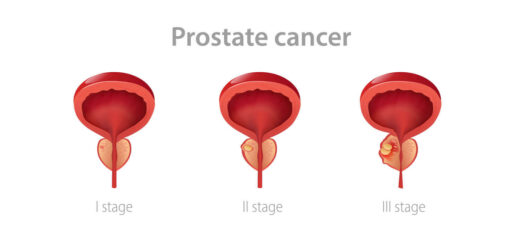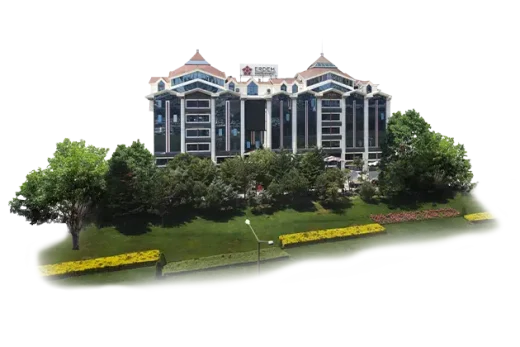Being diagnosed with prostate cancer can feel like your world has stopped. It’s a diagnosis no one wants to hear, but it’s also a disease with highly treatable outcomes when caught early. For many men, surgery is a crucial step toward beating cancer and returning to a healthy life.
This article walks you through the entire journey from preparing for prostate cancer surgery to understanding the recovery process. Whether you’re newly diagnosed or supporting a loved one, this guide provides the clarity and reassurance needed during a difficult time.

Why Surgery May Be Needed
Prostate cancer is one of the most common types of cancer among men, particularly those over the age of 50. According to the American Cancer Society, approximately 1 in 8 men will be diagnosed with prostate cancer in their lifetime.
The good news? Most prostate cancers are slow-growing and highly treatable especially when localized to the prostate gland. Surgery becomes a preferred option when:
- The cancer is confined to the prostate.
- There’s a high risk of cancer spreading.
- The patient is in overall good health and can tolerate general anesthesia.
The most common surgical procedure for prostate cancer is called a radical prostatectomy, which involves removing the entire prostate gland and some surrounding tissues.
Types of Prostate Cancer Surgery
When it comes to prostate cancer surgery, there are generally two main techniques used:
1. Open Radical Prostatectomy
This traditional approach involves a single large incision in the lower abdomen to access and remove the prostate. It’s highly effective and still commonly used, especially when cancer has spread to surrounding areas.
2. Minimally Invasive Techniques (Laparoscopic or Robotic Surgery)
Minimally invasive methods use smaller incisions, cameras, and robotic-assisted tools for higher precision. Benefits often include less blood loss, reduced pain, and quicker recovery.
At advanced medical centers, such as Erdem Hospital in Istanbul, both techniques are available depending on your condition and preference. Erdem Hospital’s urology team, including Prof. Dr. Necmettin Atsü, specializes in both open prostatectomy and the HoLEP technique for related prostate conditions, ensuring international patients receive tailored, expert care.
What to Expect
1. Preoperative Evaluation
Your urologist will assess your cancer stage, PSA levels, and overall health. This often includes:
- Blood tests (including PSA)
- MRI or CT scans
- A prostate biopsy (already done before surgery decision)
- Anesthesia clearance
2. Preparing Your Body
In the weeks leading up to surgery, you may be advised to:
- Stop taking certain medications like blood thinners.
- Begin bowel preparation before surgery.
- Follow a low-fiber or liquid diet 24 hours before.
- Stay hydrated and rest well.
3. Mental Preparation
Fear is normal. Don’t hesitate to ask your care team about the surgical plan, possible risks, and expected outcomes. Understanding each step helps reduce anxiety.
Step by Step
Prostate cancer surgery is typically performed under general anesthesia and lasts between 2 to 4 hours. Here’s what usually happens:
- You’ll be admitted to the hospital and prepped for surgery.
- Once asleep, the surgeon will begin the prostatectomy via the chosen method.
- A catheter is placed in your bladder to help you urinate during initial recovery.
- After surgery, you’ll be monitored in a recovery room before being transferred to your hospital room.
Most patients stay in the hospital for 1 to 3 days, depending on the surgical method and their recovery speed.
The Recovery Timeline
Recovery from prostate cancer surgery is gradual but manageable with the right care.
1. First Few Days (Hospital Stay)
- You’ll feel some discomfort around the incision site.
- You may need pain medication and antibiotics to prevent infection.
- The catheter stays in place for about 7–10 days.
2. First 2 Weeks at Home
- Rest is essential. Avoid lifting heavy objects or strenuous activity.
- You may experience urinary incontinence; this is common and usually temporary.
- Follow-up appointments are scheduled to monitor healing and remove the catheter.
3. One Month and Beyond
- Most men can return to light work or activities after 4–6 weeks.
- Urinary control and sexual function often improve over time, but every patient’s journey is different.
- Pelvic floor exercises (like Kegels) can aid in regaining bladder control.
- Medications or therapies may help with erectile dysfunction, if it occurs post-surgery.
Common Side Effects and How to Manage Them
Though prostate surgery is effective, it’s normal to experience some side effects:
– Urinary Incontinence
Temporary loss of bladder control is the most common side effect. Most men regain control within a few weeks to months.
– Erectile Dysfunction
This depends on the type of surgery and your age. Nerve-sparing techniques are designed to preserve erectile function, but recovery may take 6–12 months. Your doctor might recommend medications like sildenafil (Viagra) or penile therapy.
– Bowel Issues
Some men experience mild bowel discomfort post-op, but these typically resolve on their own with diet and time.
Monitoring and Long-Term Outcomes
After surgery, your PSA levels should drop to undetectable levels. You’ll be monitored regularly to ensure the cancer hasn’t returned.
Typical follow-ups include:
- PSA tests every 3–6 months in the first two years
- Annual checkups after that
If PSA begins to rise again, further treatment like radiation or hormone therapy may be considered.
The long-term outlook for men undergoing prostatectomy is generally excellent, especially when the cancer is caught early. According to recent studies, the 5-year survival rate for localized prostate cancer is nearly 100%.
Why Choose Turkey for Prostate Cancer Surgery?
In recent years, Turkey has become a sought-after destination for men seeking high-quality prostate surgery at a lower cost. Hospitals like Erdem Hospital in Istanbul combine:
- Board-certified urologists
- Advanced surgical techniques
- English-speaking care teams
- Comprehensive recovery support
- Modern facilities with international accreditation
Patients from the UK, Europe, and the US are choosing Turkey not just for affordability, but for the personal, hands-on experience they receive.
A Message of Hope for Men Facing Prostate Cancer
Facing prostate cancer can feel overwhelming, but choosing surgery is often a powerful step toward reclaiming your life. With advances in medical technology, experienced surgical teams, and personalized recovery plans, most men return to normal life with full function and peace of mind.
Don’t let fear dictate your future. Get informed, ask questions, and explore your options because life after prostate cancer isn’t just possible, it can be full, active, and vibrant.
Thinking About Prostate Cancer Surgery Abroad?

If you’re considering prostate cancer surgery in Turkey, Erdem Hospital offers world-class expertise with compassion. Led by Prof. Dr. Necmettin Atsü, our team provides both open surgery and minimally invasive techniques for personalized care tailored to your diagnosis.
Contact us today to speak with a medical coordinator and receive a free consultation plan based on your needs. We’re here to help you move forward with confidence.